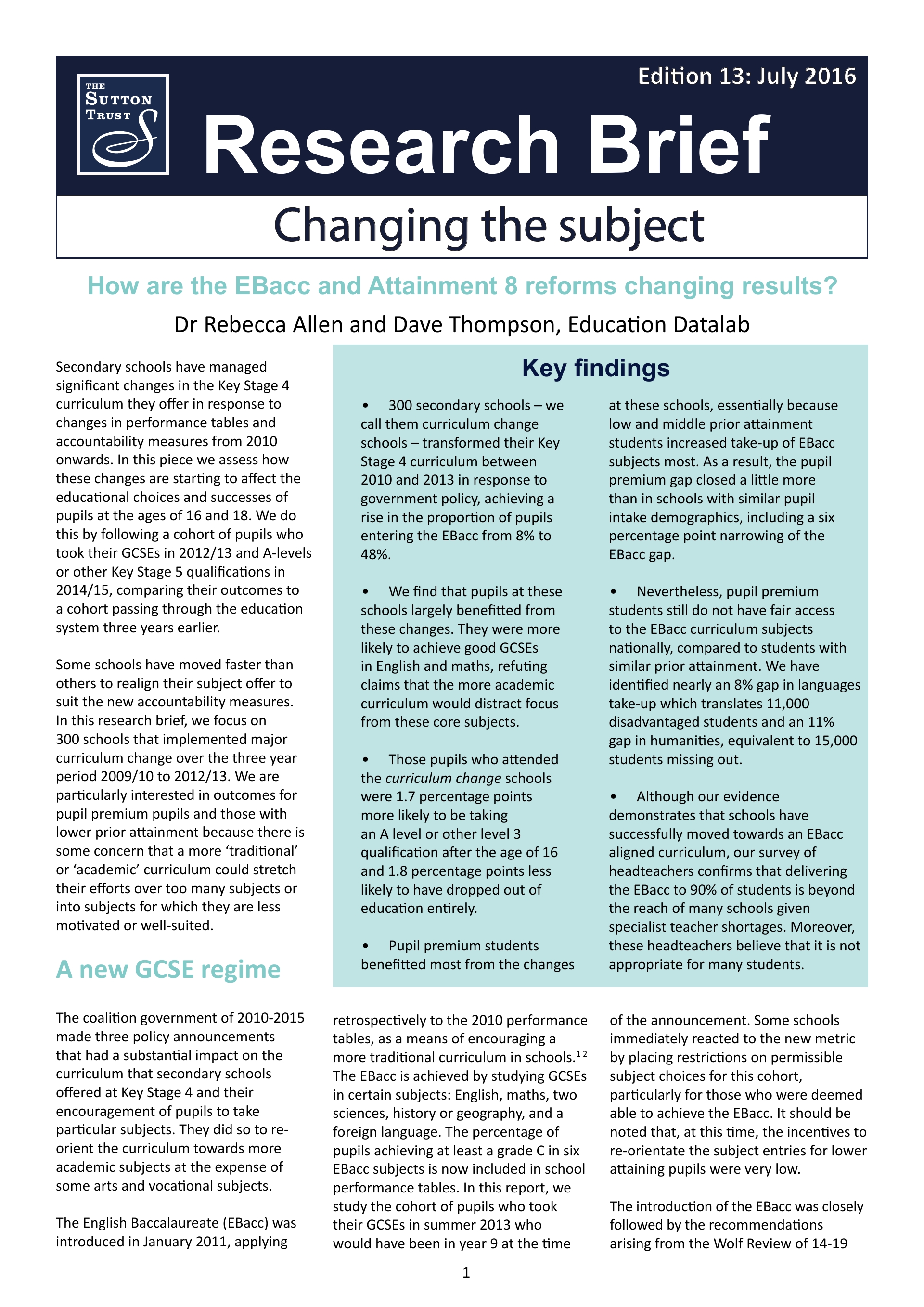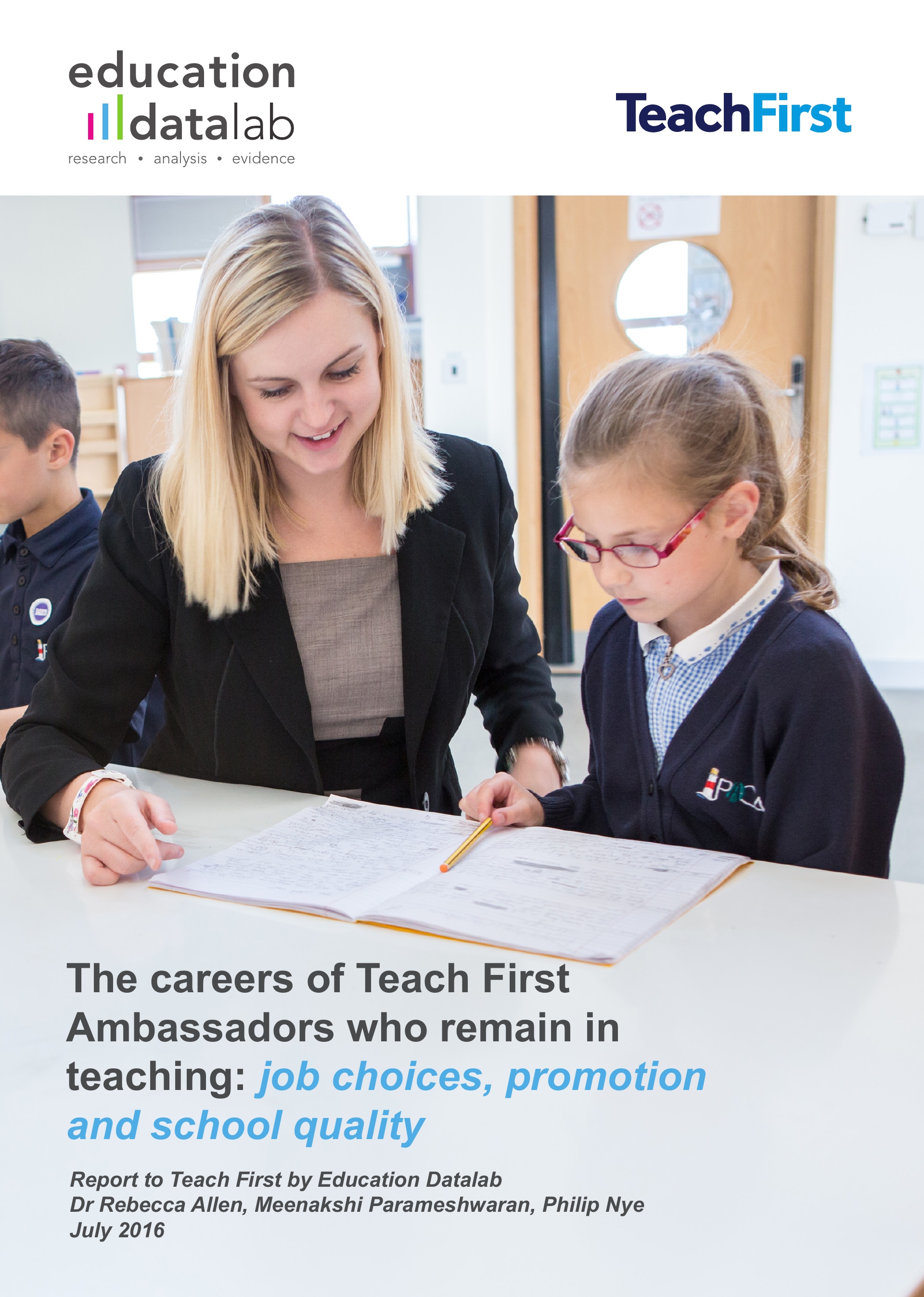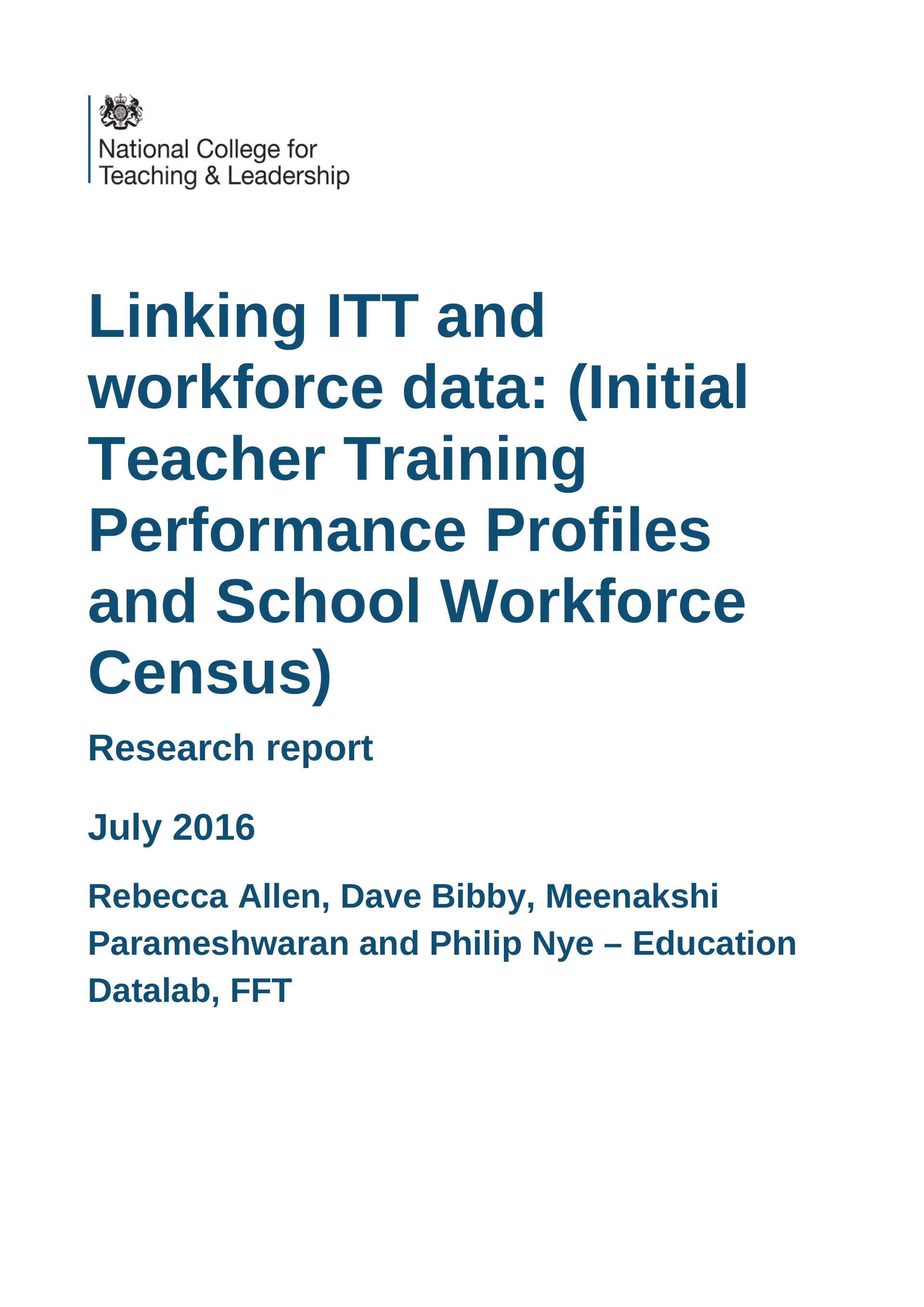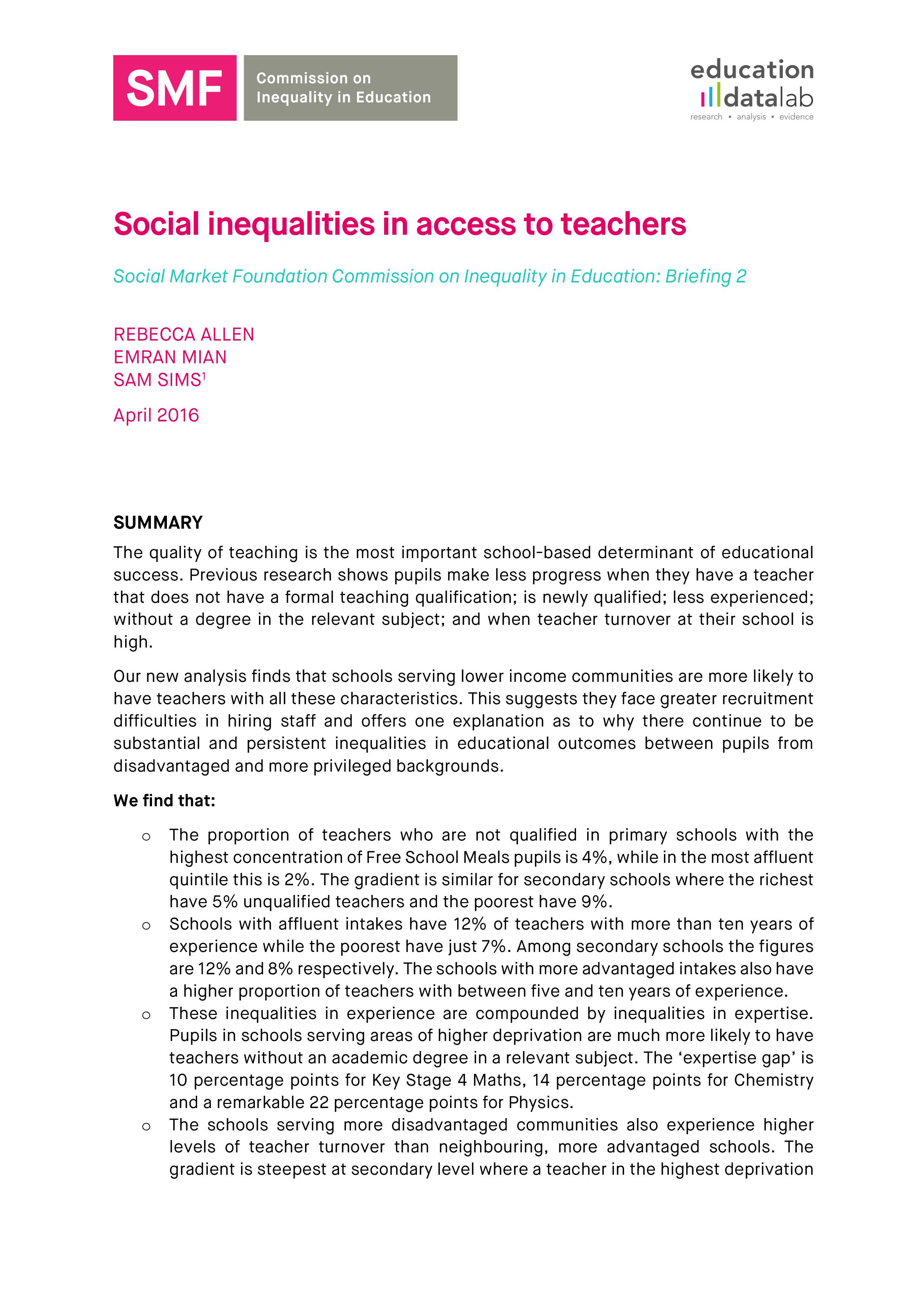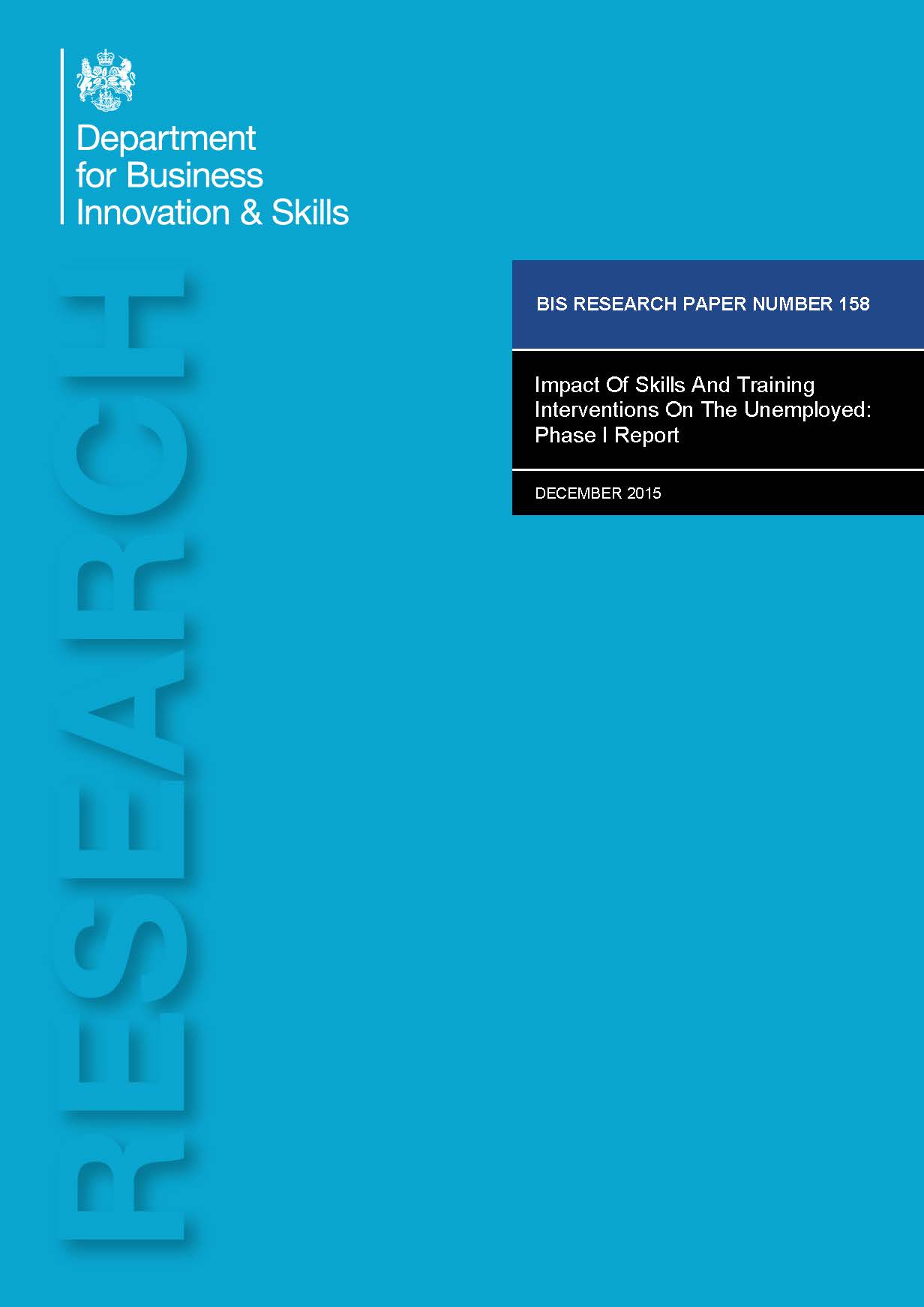Changing the subject: why pushing pupils from disadvantaged backgrounds to take more academic subjects may not be such a bad thing
Today, Sutton Trust published our report on the 300 secondary schools who transformed their curriculum between 2010 and 2013 in response to government policy, achieving a rise in the proportion of pupils entering the EBacc from 8% to 48%. Understanding the experiences of pupils in these schools gives us a little window on what might [...]



